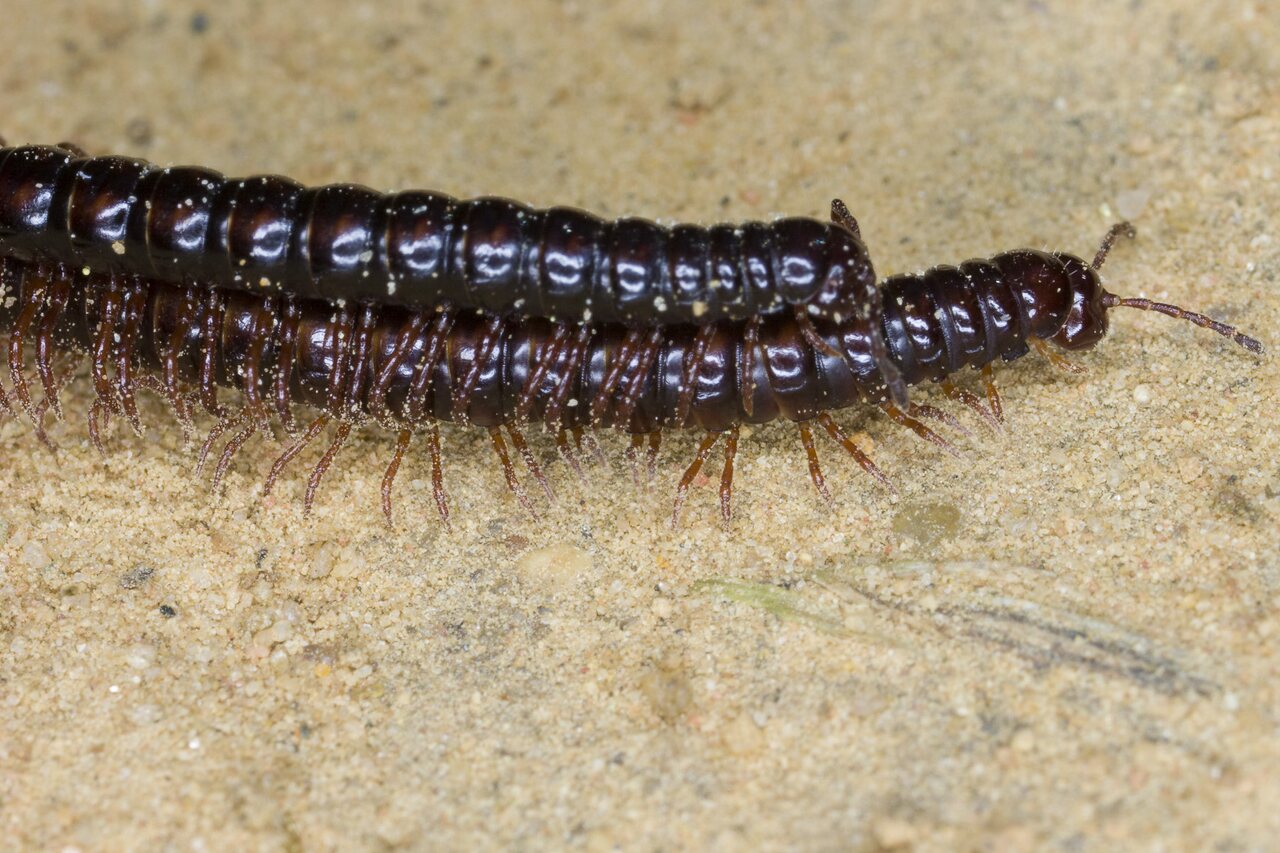
Strongylosoma stigmatosum mating · dviporiakojis šimtakojis poruojasi
- Strongylosoma stigmatosus
- węzławiec walcowaty
https://de.wikipedia.org/wiki/Strongylosoma_stigmatosum The species is widespread in southeastern Europe, eastern Europe and is common there. Most finds of the species occur between April and June, but it is also regularly found from July to October.
During the mating season in spring, the species is unmistakable due to its striking behavior. It runs around freely and quite nimbly without cover, and you regularly find "double-deckers" consisting of males and females. The male clings to the back of the female and allows himself to be carried around for days or weeks. He is constantly trying to hold on to the body of the female and to climb forward again and again if he has lost his footing. He feeds during her resting phases by bending down to the side. The reason for this peculiar behavior is still unclear. The male is probably waiting for a good time to copulate and/or stays with the female for some time after copulation to prevent other males from mating with this female. Of the Central European species, only S. stigmatosum shows such behaviour.
‥
0 comments
Add a comment